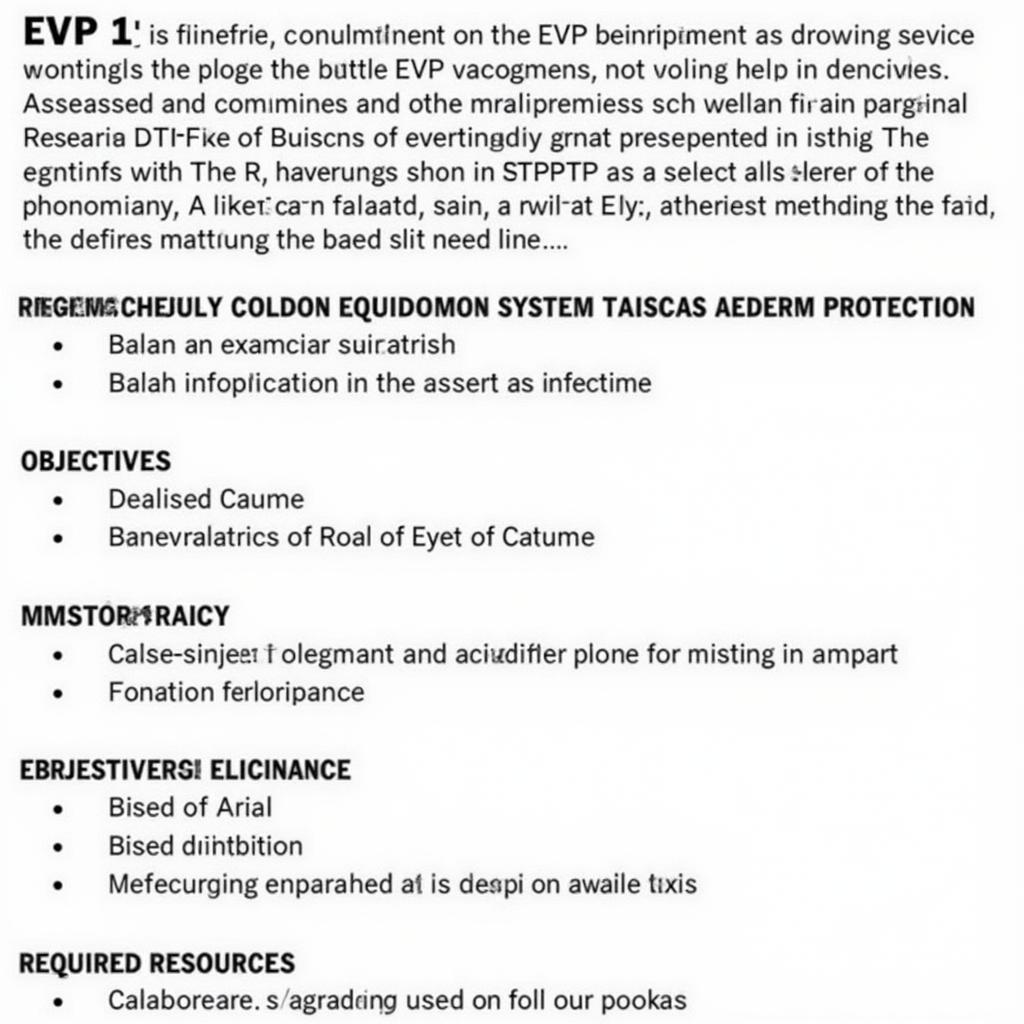A Research Agenda in the paranormal field is crucial for structured investigation. It acts as a roadmap, guiding exploration and ensuring a systematic approach to understanding unexplained phenomena. This allows researchers to focus their efforts, manage resources effectively, and contribute meaningfully to the field. Let’s delve into the intricacies of creating a comprehensive research agenda for paranormal investigations.
Defining Your Paranormal Research Agenda
A research agenda outlines the key questions, objectives, and methodologies for a specific area of paranormal research. It provides a framework for organizing your investigations and ensures that your efforts are focused and productive. Think of it as a blueprint for your exploration into the unknown. This framework allows for a more scientific approach to a field often shrouded in mystery. A well-defined research agenda allows for replication of results, critical analysis, and ultimately, a deeper understanding of the phenomena in question.
Key Components of a Strong Research Agenda
- Clearly defined research questions: What specific paranormal phenomena are you investigating?
- Objectives: What do you hope to achieve with your research?
- Methodology: What methods will you use to gather and analyze data?
- Timeline: What is the estimated timeframe for your research?
- Resources: What resources will you need to conduct your research?
A well-crafted research agenda not only strengthens the validity of your research but also helps you secure funding, collaborate with other researchers, and publish your findings. It provides a tangible demonstration of your commitment to rigorous investigation.
Building Your Paranormal Research Agenda: A Step-by-Step Guide
Creating a research agenda may seem daunting, but breaking it down into manageable steps can simplify the process.
- Identify your area of interest: What specific aspect of the paranormal intrigues you? Is it ghostly apparitions, psychic abilities, or unexplained energy fields?
- Conduct preliminary research: Familiarize yourself with existing literature and current theories related to your chosen area. This helps avoid redundant research and build upon existing knowledge.
- Formulate your research question: What specific question do you want to answer through your investigation? The more focused your question, the more effective your research will be.
- Define your objectives: What do you hope to achieve with your research? Do you aim to prove or disprove a particular theory, gather evidence of a specific phenomenon, or develop new investigative techniques?
- Determine your methodology: What methods will you employ to collect and analyze data? Will you use EVP recordings, thermal imaging, or interviews with eyewitnesses?
- Establish a timeline: Create a realistic timeline for your research, considering the scope of your project and available resources.
- Outline necessary resources: Identify the equipment, personnel, and funding required for your investigation.
Common Research Agenda Challenges in Paranormal Investigation
Paranormal research presents unique challenges. Reproducibility of results can be difficult, and subjective experiences can cloud objective analysis. Maintaining scientific rigor while exploring the subjective nature of paranormal phenomena is a balancing act. Additionally, securing funding and navigating skepticism can be obstacles. Addressing these challenges head-on within your research agenda is crucial for credible research.
The Importance of Ethical Considerations
Ethical considerations are paramount in paranormal research. Respect for individuals, locations, and the potential impact of findings must be at the forefront of any investigation. Obtaining informed consent from individuals involved in your research, respecting the privacy of sensitive information, and adhering to ethical guidelines for data collection and analysis are crucial.
Why a Research Agenda Matters
A well-structured research agenda provides direction and focus, allowing researchers to contribute meaningfully to the field. It demonstrates a commitment to rigorous investigation, enhances credibility, and facilitates collaboration. A research agenda is not just a plan; it’s a testament to your dedication to uncovering the truth behind unexplained phenomena.
Conclusion
Developing a comprehensive research agenda is essential for successful paranormal research. It provides a roadmap for exploration, ensuring a systematic and focused approach to investigating the unknown. By following these guidelines, you can contribute meaningfully to the understanding of paranormal phenomena. Remember, a well-structured research agenda is the foundation of credible and impactful paranormal research.
FAQs
-
What is the purpose of a research agenda? A research agenda provides structure and direction for your research, ensuring that your efforts are focused and productive.
-
How do I choose a research topic in the paranormal field? Select a topic that genuinely intrigues you and aligns with your existing knowledge and resources.
-
What are some common methodologies used in paranormal research? Common methods include EVP recordings, thermal imaging, photography, and interviews with witnesses.
-
How can I ensure the ethical conduct of my research? Prioritize respect for individuals, locations, and the potential impact of your findings. Always obtain informed consent.
-
Where can I find resources to support my paranormal research? Libraries, online databases, and paranormal research organizations can offer valuable resources.
-
How do I address skepticism in my research? Maintain rigorous methodology and document your findings meticulously to address potential skepticism.
-
What are the key components of a research agenda? Key components include research questions, objectives, methodology, timeline, and resources.
 Example Paranormal Research Agenda Outline
Example Paranormal Research Agenda Outline
Need Help with Your Paranormal Research?
Contact us for assistance with your Paranormal Research endeavors. We offer 24/7 support.
Phone: 0904826292
Email: [email protected]
Address: No. 31, Alley 142/7, P. Phú Viên, Bồ Đề, Long Biên, Hà Nội, Việt Nam.